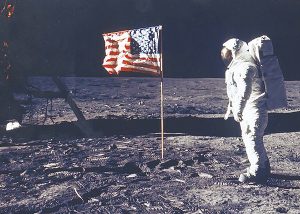The purpose of any policy is not only to effect change but also to educate the public. This educational function is important yet rarely discussed explicitly, perhaps for fear of looking like a propagandist. So be it: I wholeheartedly embrace the notion of policy as a way of educating voters.
How does this work? Consider the moon landing of 1969. It had some concrete benefits, such as preventing the Soviets from militarizing space. But just as important was the message it communicated to the American public: Think big, it said; science can lead to grand and amazing achievements. The educational aspect of the policy greatly increased its value.
Or consider NAFTA, and its successor agreement USMCA. These “free trade†agreements actually increased a lot of regulations, and their free-trade benefits are actually pretty small (though still positive). Still, I am enthusiastic about the policies. If nothing else, they sent voters the message that trade and regional cooperation is a good thing and ought to be encouraged. This educational effect was especially useful in Mexico, as the underlying assumption of the message is that Mexico is a stable democracy on a par with the rest of North America.
Of course, there is also the danger of a backlash effect. If you say that NAFTA will result in high-paying jobs, and it doesn’t, people may end up opposing free trade altogether. That is reason to be careful, but it is not reason to neglect the educational effects of policies.
There are also policies with educational costs rather than benefits. President Joe Biden’s student debt-forgiveness order sends the message that students and the US educational sector are especially deserving of largesse.
This is on net a negative message, even apart from the other deleterious effects of the policy, most of all its expense. A far better message would be that the US system of higher education needs serious reform.
Minimum-wage hikes also send the wrong message to voters. Yes, there is literature suggesting that such increases destroy far fewer jobs than previously thought, and may have considerable ancillary benefits, such as preventing suicides. Still, a minimum wage is a kind of price control, and most price controls are bad. Voters may not realize the subtle ways in which minimum-wage hikes are different (and better) from most price controls. Instead, they get the message that the path to higher living standards is through government fiat, rather than better productivity.
If you think that far-fetched, consider the initiative passed by the California Senate this week.
—Bloomberg
 The Gulf Time Newspaper One of the finest business newspapers in the UAE brought to you by our professional writers and editors.
The Gulf Time Newspaper One of the finest business newspapers in the UAE brought to you by our professional writers and editors.
